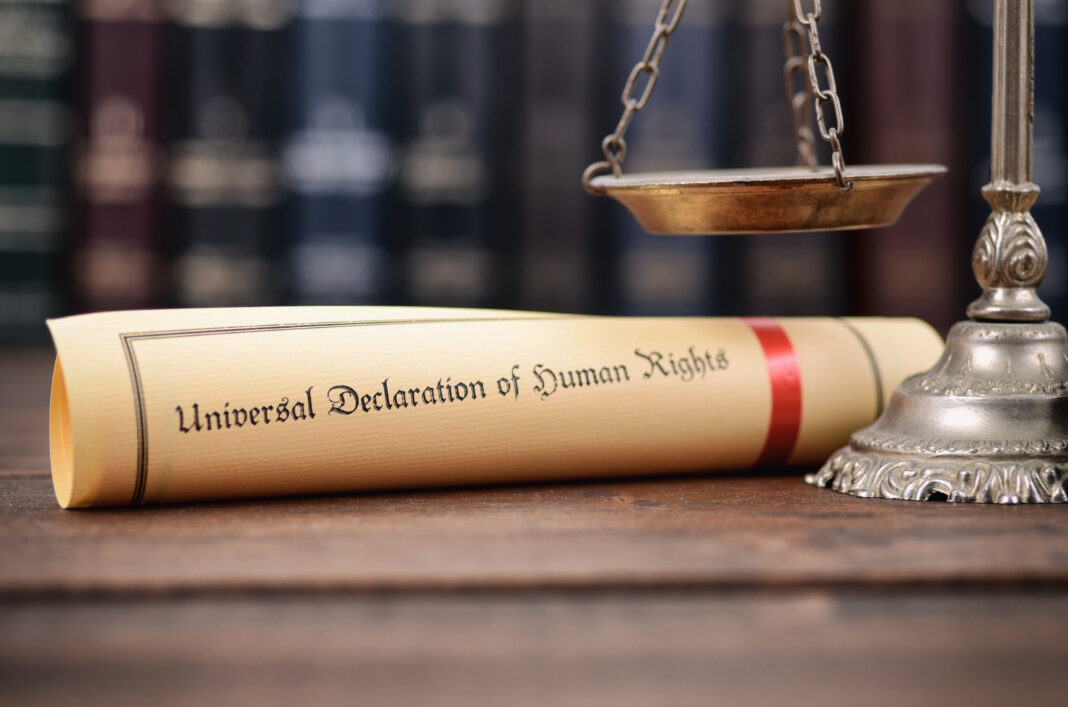by Raffaele Crocco
Let’s face it, the Universal Declaration of Human Rights is getting on in years. It’s now 75 years old, and it shows. Few people think seriously about it. Its principles have become mere rhetoric in the speeches of those who approach human relations with an outdated mindset, reverting to last century’s notion that dominance is what matters in politics, be it foreign or domestic.
Let’s face reality. There are currently 31 active wars and at least twenty major crisis areas around the world. Each of these conflicts is rooted in unresolved issues: the unequal distribution of wealth and resources, the exploitation of people and land, and the lack of political, social and labour rights. It’s exactly the list of unenforced principles in the Declaration. This applies to at least half the world’s population.
In the other half of the world, where we live and where conditions are less crisis-ridden and less impoverished, the Declaration is losing its relevance. It’s fading in democracies that are becoming less inclusive, where labour rights are overshadowed by individual bargaining tainted by coercion, and where the welfare state has been stripped of its meaning and replaced by charity and the efforts of civic associations.
It’s remarkable to think that the Declaration remains the most exquisite document ever produced by the human mind. It had the power to overturn centuries of entrenched beliefs and conventions. Consider the fundamental principle underlying its 30 articles: every individual on earth, regardless of geography, sex, colour or age, possesses the same rights, which are inviolable and inalienable. These rights are inherent simply by virtue of being born into the world.
It’s a profound and ambitious concept that challenges the age-old notion that rights are mere concessions granted or denied by authorities such as governments, kings or deities. Instead, it asserts that rights are inherently individual and, when combined, become collective. Admittedly, not everyone embraces this ground-breaking idea. Some argue that it’s too “Eurocentric”, born of the European belief in its cultural, intellectual and political centrality, imposing principles to cleanse the conscience of centuries of colonialism. In various African cultures, in Islam and in parts of fundamentalist Catholicism, the idea of inalienable rights from birth is resisted. Throughout the world, concepts such as gender equality, political freedom, freedom of association and freedom of thought are still struggling to find their way into everyday life.
Coupled with a growing lack of confidence in our fragile democracies, this has left the Declaration stagnant in the challenges it faces. Failing to achieve universal acceptance and application, we’ve allowed it to fade away, instead persisting in behaviours that contradict its principles: exploiting our neighbours, closing borders and spaces, and militarising confrontation and politics.
This is the situation. Is there any reason for pessimism? No, we must respond by placing the Universal Declaration of Human Rights at the forefront of political action and the social agenda of our administrations and governments. We must breathe new life into the Declaration by promoting awareness, disseminating it and translating it into the concrete actions that each of us experiences every day: going to school, receiving medical care, formulating and expressing ideas. Not knowing the Declaration is like trying to drive a car without passing the theory test for a driving licence. Without knowledge of traffic signs or the rules of the road, sooner or later a collision is inevitable. This is the fate that awaits us if we let the dust settle on the Declaration: banging our heads against the wall.
Cover photo by corgarashu/Shutterstock.com
























